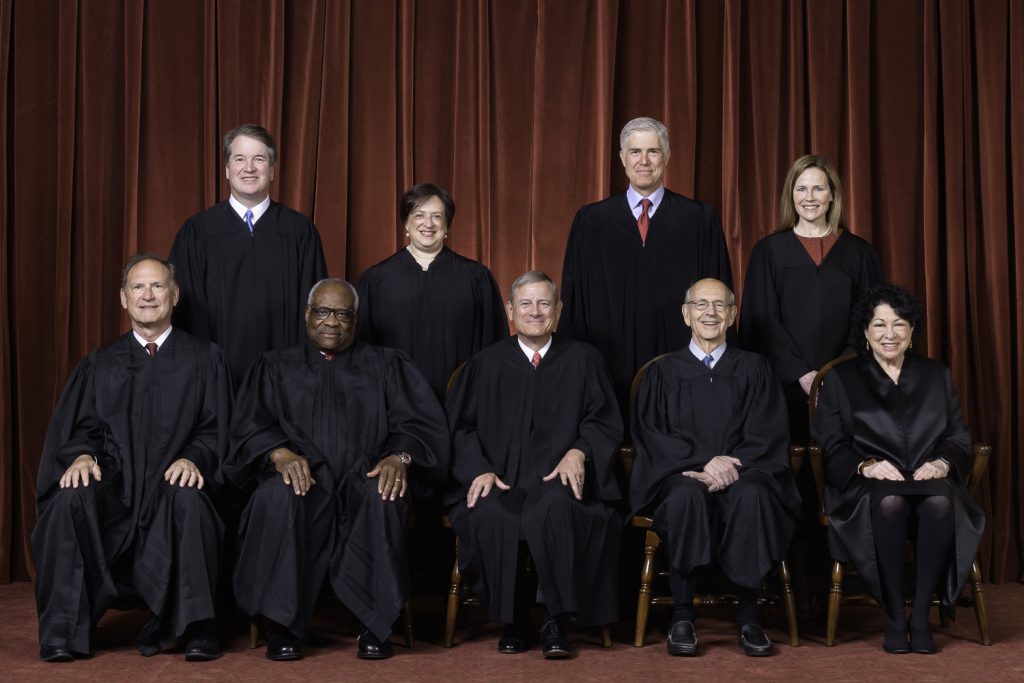Video: SCOTUS Agrees to Hear Abortion Case
The U.S. Supreme Court has agreed to hear what could be a landmark case on abortion.
Watch this video to learn more.
The U.S. Supreme Court has agreed to hear what could be a landmark case on abortion.
Watch this video to learn more.

Recently we wrote about how 22 states filed an amicus brief with the U.S. Supreme Court in support of Arkansas’ law generally prohibiting abortions performed because the baby may have Down Syndrome.
Earlier this month U.S. Sens. Tom Cotton and John Boozman and U.S. Reps. Rick Crawford, Bruce Westerman, Steve Womack, and French Hill filed an amicus brief in support of the law as well.
In 2019 the Arkansas Legislature passed Act 619 prohibiting abortion of an unborn baby solely because the child may have Down Syndrome.
At the time, Family Council estimated that Act 619 could save upwards of 100 unborn children in Arkansas every single year.
The ACLU and the state’s only surgical abortion facility promptly sued the State of Arkansas to have the law struck down. U.S. District Judge Kristine Baker and the Eighth Circuit Court of Appeals subsequently blocked Arkansas from enforcing the law.
In April Arkansas Attorney General Leslie Rutledge filed a petition with the U.S. Supreme Court asking the nation’s highest court to take up the case.
Now Arkansas’ congressional delegation and their colleagues in Washington are asking the supreme court to uphold this good, pro-life law as well.
Among other things, the brief argues that Arkansas’s law intends to combat discrimination against unborn children with disabilities. It says that an abortion performed because a baby might have Down Syndrome amounts to eugenics, and it argues that Congress has a longstanding interest in protecting Americans with disabilities.
“Having Down syndrome—or any other disability—’doesn’t make anyone less human,'” the brief says. “Arkansas recognizes that and so should this Court.”
This could be a pivotal case, because it has the potential to reshape how federal judges treat state abortion laws like Act 619 of 2019.
It could give the U.S. Supreme Court an opportunity to overturn past rulings like Roe v. Wade or Planned Parenthood v. Casey.
That would be a huge victory for pro-lifers everywhere in America.

On Monday the U.S. Supreme Court agreed to hear a case that the ACLU says could “decimate” abortion in America.
The case deals with a law Mississippi passed in 2018 generally prohibiting abortion after the fifteenth week of pregnancy.
If the U.S. Supreme Court upholds the law, it could provide an opportunity to roll back past pro-abortion rulings.
But even if the court strikes the law down, the court may reinterpret decisions like Roe v. Wade and Planned Parenthood v. Casey in a way that helps pro-lifers.
In 2013 the Arkansas Legislature passed a pro-life law generally prohibiting abortion after the twelfth week of pregnancy if a fetal heartbeat can be detected.
The Eighth Circuit Court of Appeals blocked most of the law, ruling that the attorneys for the State of Arkansas failed to address key questions about an unborn child’s viability and personhood. However, the courts left the law’s informed-consent requirements in place. Even though Arkansas lost that case, some of the court’s findings in that ruling actually made it easier for us to pass additional pro-life legislation in 2015 and 2017.
The U.S. Supreme Court’s decision in Mississippi’s case could set the stage for Arkansas to pass other good, pro-life laws in the future — and make it easier for the State of Arkansas to defend its newest pro-life laws in court.
Arkansas and other states have passed a record-setting number of pro-life laws this year.
Slowly but surely we are winning the fight against abortion.